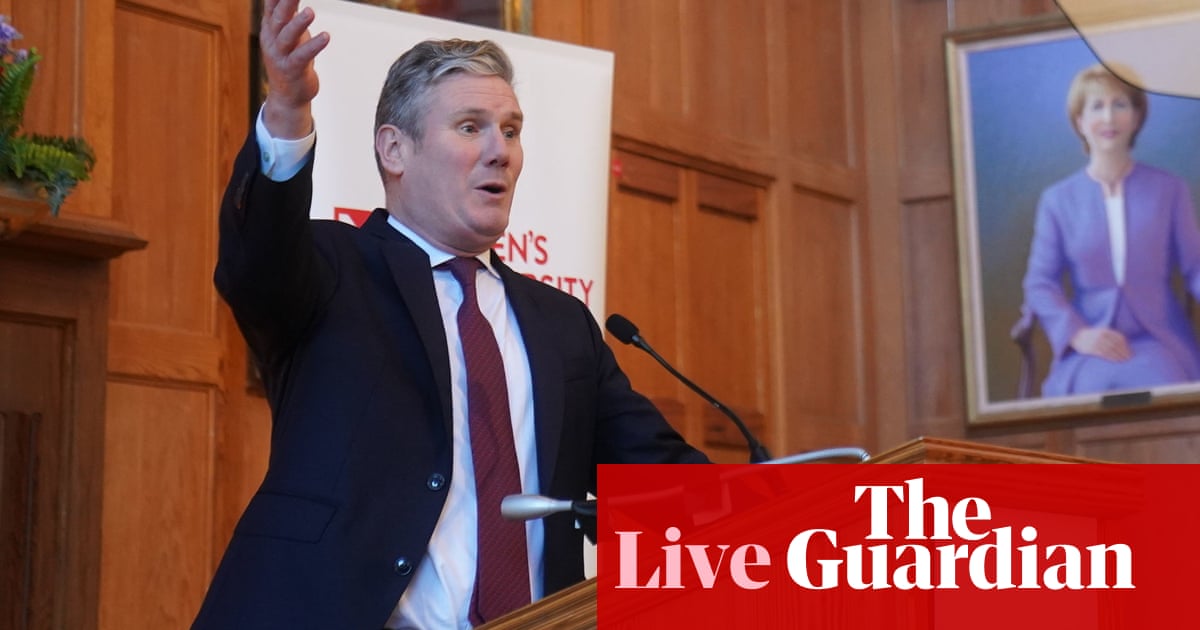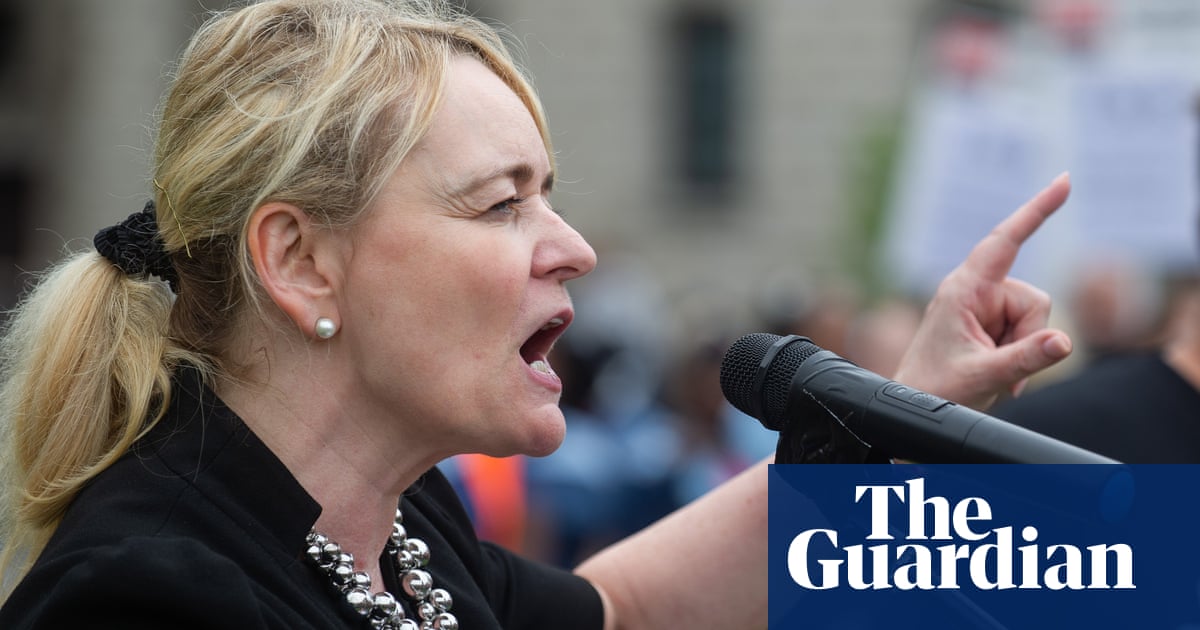
The trade union Unite has joined forces with Momentum to demand that the Labour leader, Keir Starmer, order the party’s MPs to vote against the third reading of a bill on Thursday night regulating the conduct of MI5 and police informants.
They have come together with a Hillsborough families and survivors group and others in demanding that Labour drop its plan to abstain and fully oppose the covert human intelligence sources (Chis) bill, which they say poses a “grave threat” to both civil liberties and trade union rights.
Their intervention escalates a dispute that has rapidly become the most significant revolt by the party’s left against Starmer since he became leader, and looks set to prompt a third rebellion in three weeks by leftwing MPs.
In a joint letter to Starmer, the groups conclude: “We strongly believe the Labour party must oppose the bill at third reading should all the amendments tabled from Labour’s benches not pass.”
Signatories to the letter include Len McCluskey, the general secretary of Unite, Andrew Scattergood and Gaya Sriskanthan, the co-chairs of left pressure group Momentum and Sheila Coleman from the Hillsborough Justice Campaign.
Last week, Jeremy Corbyn and 19 other Socialist Campaign Group MPs broke the party’s whip to abstain and voted against the second reading of the bill, which confirms MI5’s right to allow informants to commit crimes.
Starmer then told Labour MPs on Tuesday night’s meeting of the parliamentary Labour party that he would not seek to vote down the bill if the party’s amendments, as is expected, fail to pass on Thursday.
Both the leader and Nick Thomas-Symonds, the party’s home affairs spokesman, believe the government has no choice but to put an informants bill on the statute book because the legal position had been made increasingly uncertain after a legal challenge in which a court only ruled three to two in the government’s favour.
However the joint letter from unions and pressure groups argues there is an important point of principle at stake: “One of the key concerns for us about the bill is that the scope of the criminality which can be licensed is not limited: serious crimes ranging from murder to child abuse are not ruled out.”
The bill does not contain a list of crimes that are explicitly prohibited as happens in some countries such as Canada. But the Home Office says crimes such as murder and torture are in effect ruled out because the bill will be compliant with the European convention on human rights.
Some trade unions led by Unite have become increasingly concerned at the introduction of the bill, arguing that it could authorise spying on their activities by undercover agents or police.
“In addition, the scope of the reasons for which criminality can be authorised in the bill includes protecting the UK’s economic activities, which we fear could lead to authorised criminal acts against trade union members,” the letter says.
The signatories criticise the leadership for abstaining at the earlier second reading given “the profound nature” of the bill’s contents and say “the rationale behind that decision was not satisfactorily explained”.
Some on the party’s left believe the decision was designed to draw a dividing line between Starmer and Corybn. Last month party insiders were emphasising that “national security has always been a priority” of Starmer’s in the run-up to his key note address at Labour’s virtual conference.
Other signatories to the letter include: Dave Ward, general secretary of the Communication Workers Union; Matt Wrack, general secretary of the Fire Brigades Union; Dave Webb, chair of the Campaign for Nuclear Disarmament; and David Smith, chair, of the Blacklist Support Group.












